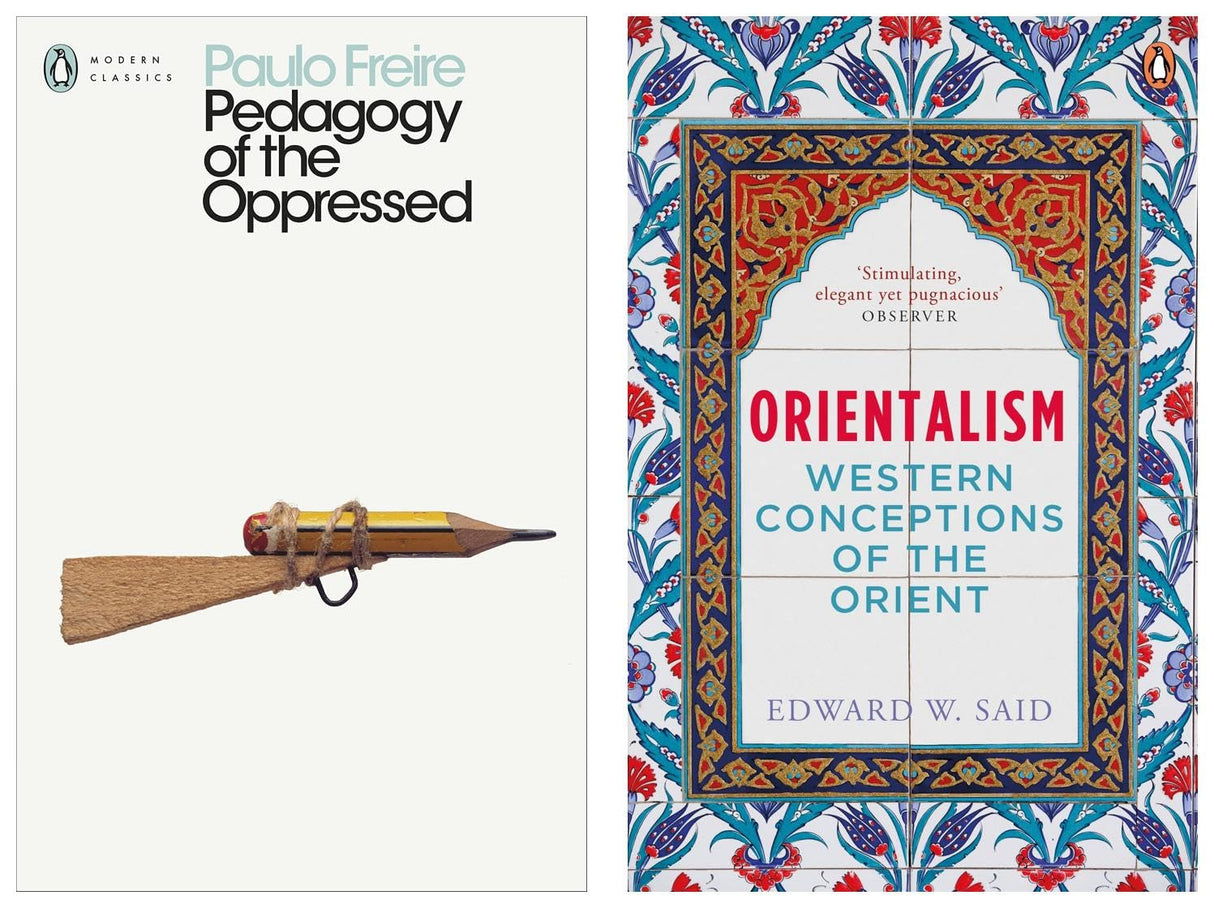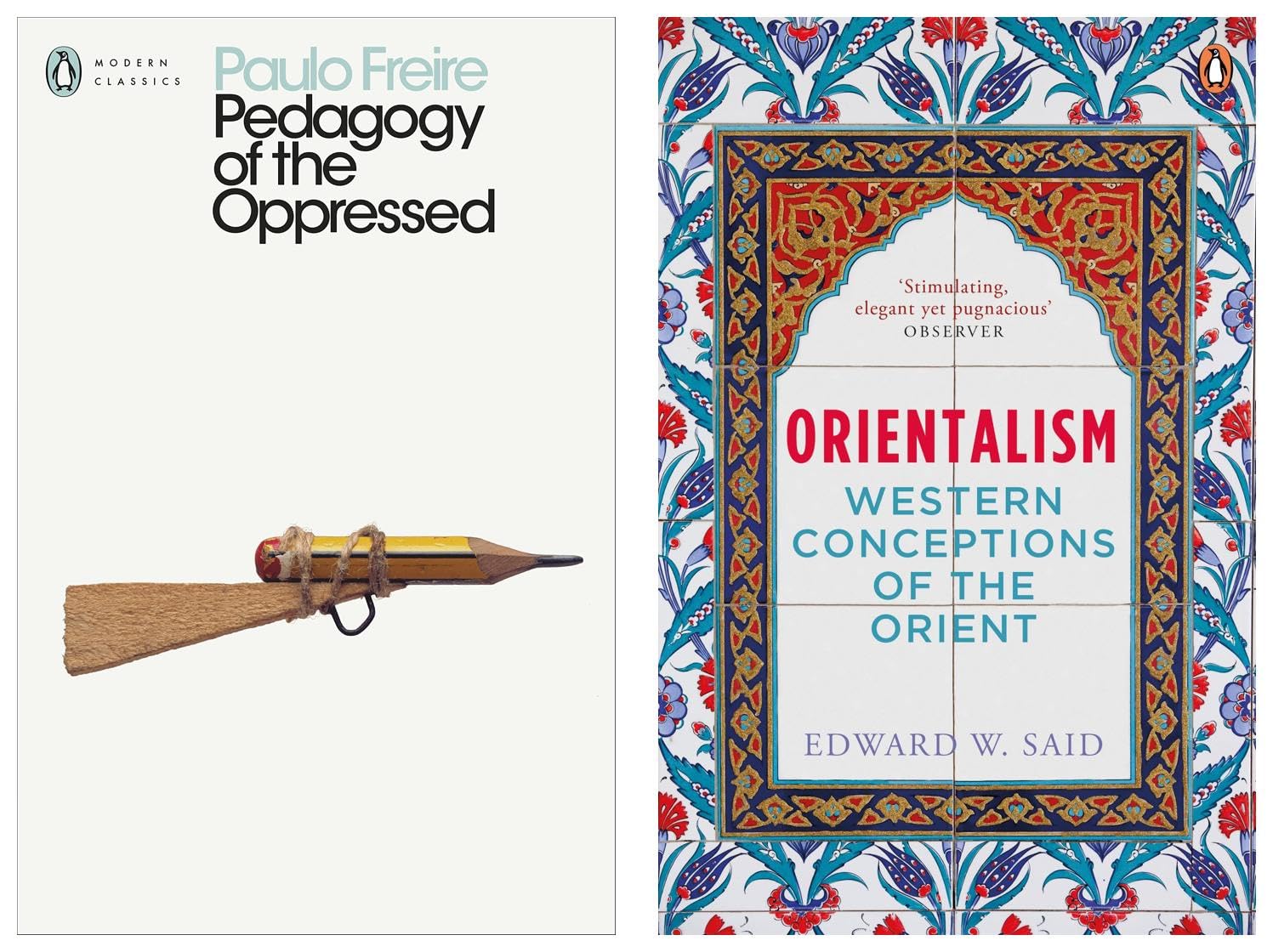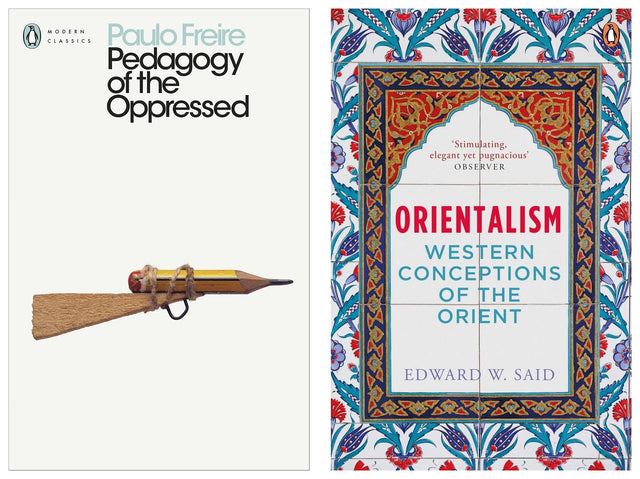Orientalism by Edward W. Said: Penguin classics about Asian and Western History | History Book with Ideas of Islamic World & Pedagogy of the Oppressed (Penguin Modern Classics) Freire, Paulo
Orientalism by Edward W. Said: Penguin classics about Asian and Western History | History Book with Ideas of Islamic World & Pedagogy of the Oppressed (Penguin Modern Classics) Freire, Paulo is backordered and will ship as soon as it is back in stock.
Couldn't load pickup availability
Genuine Products Guarantee
Genuine Products Guarantee
We guarantee 100% genuine products, and if proven otherwise, we will compensate you with 10 times the product's cost.
Delivery and Shipping
Delivery and Shipping
Products are generally ready for dispatch within 1 day and typically reach you in 3 to 5 days.
Book Details
-
Brand: Penguin Random House
-
Binding: Paperback
- ISBN: 9780143027980
- Language: English
About the Book
This bundle offers two transformative and seminal works that have shaped modern thought on culture, oppression, and societal power structures. The first book, Orientalism by Edward Said, is a pioneering exploration of how the West perceives the East. Said's influential work reveals how Western scholars, writers, and imperial powers have shaped distorted views of the Arab and Islamic world, contributing to the perpetuation of colonial ideologies and the domination of Eastern societies. Now reissued with an insightful afterword, Orientalism remains one of the cornerstones of cultural studies and has become a required text in understanding the power of cultural narratives.
The second book in this bundle is Paulo Freire’s Pedagogy of the Oppressed, a powerful critique of traditional education systems. Freire argues that education, in its conventional form, suppresses the voices of the oppressed by treating students as passive recipients rather than active participants in their own learning. In this radical work, Freire calls for a new approach to teaching, one based on dialogue, cooperation, and critical thinking, enabling individuals to challenge the systems that keep them oppressed. Pedagogy of the Oppressed has influenced educators and activists worldwide and remains a foundational text in discussions of democracy and education.
Together, these works offer a compelling critique of societal structures, urging readers to consider how power, education, and culture shape our understanding of the world. Both books continue to inspire debates on freedom, identity, and the role of education in fostering true societal change.





